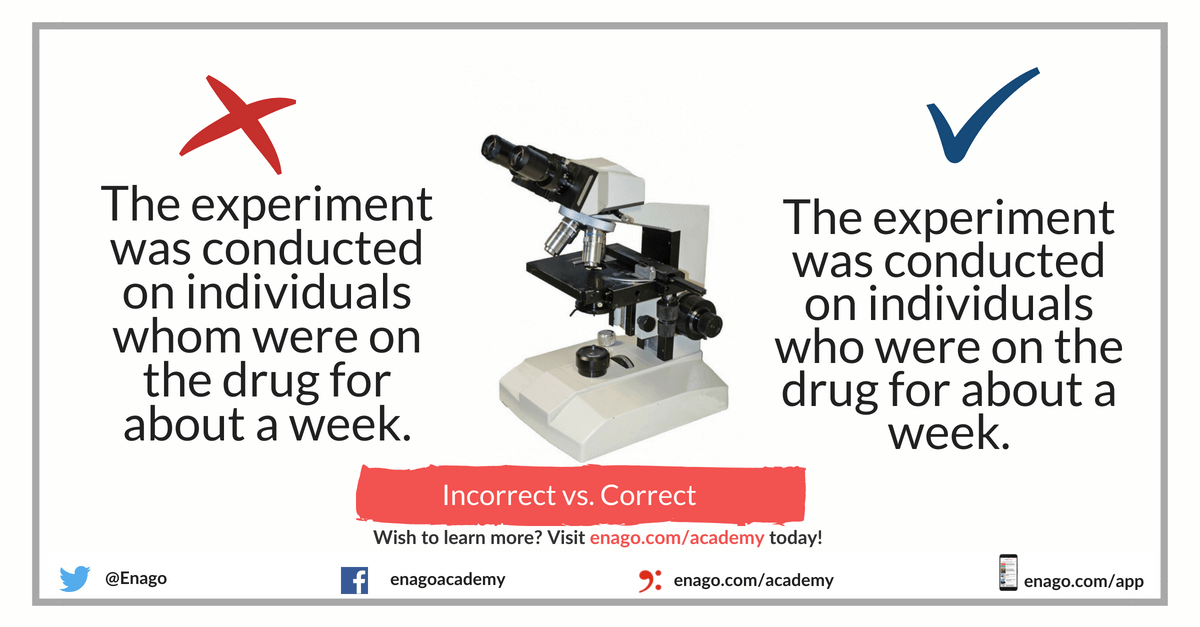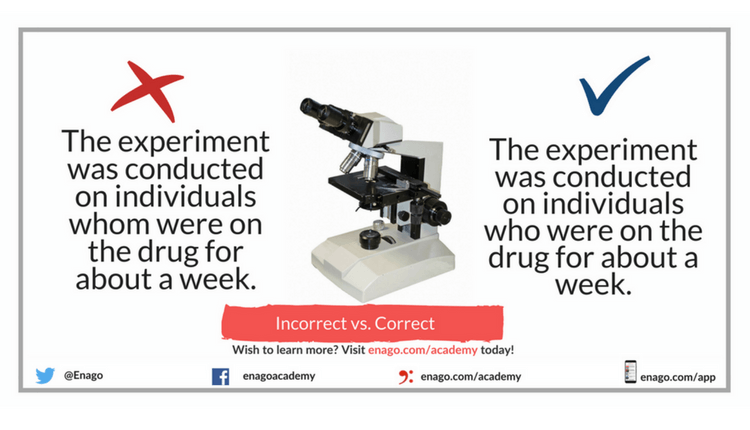Who Vs. Whom

Researchers often get confused between the usage of “who” and “whom.” Both are pronouns but have slightly different meanings.
When to use “Who”
“Who” is generally used for the subject. See the below examples for a better understanding
Who wrote the abstract of this paper?
I’m not sure who reported the data as incorrect in the manuscript.
When to use “Whom”
On the other hand, “whom” is generally the object in the sentence. Here are few examples of its usage:
With whom are you going to collaborate in your next research project?
The research assistant, whom we just hired, failed to show up to work today.
Know the Difference
There is one simple way to avoid such confusion. If the question is considered a statement, we have to check whether the subject can be replaced by pronouns like “he,” “she,” etc., or “him,” “her,” etc. If we find pronouns like “he,” “she,” etc., appropriate in the statement, the question should have a “who” in it.
On the other hand, if pronouns like “him,” “her” etc., seem to be correct, then we need to choose “whom” over “who.” Check the example below to clear your doubts.
Incorrect: The first author is generally whom does the maximum work in a research.
Correct: The first author is generally who does the maximum work in a research.










